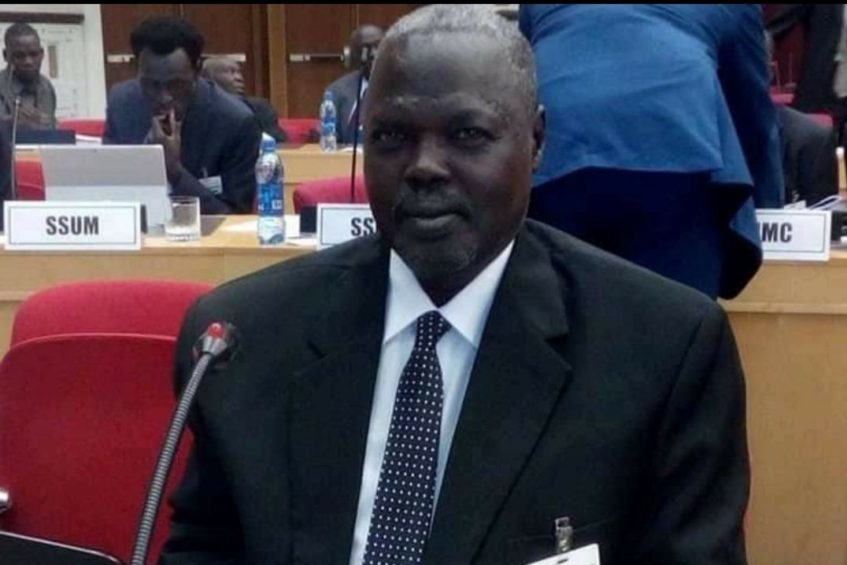You are here: Home | National News | News | Peace | Politics | Upper Nile finally gets a governor

Abudhok Ayang Kur, the new Governor of Upper Nile State (SPLM -IO) - credit John Orag
President Salva Kiir has finally appointed a governor and a deputy for Upper Nile State, ending a long deadlock between his party and Dr. Riek Machar’s opposition group over the nominee for the gubernatorial post.
In a presidential decree Friday evening, Kiir appointed Abudhok Anyang Kur as governor and James Tor Monybuny as his deputy.
The new Upper Nile Governor is a little known politician from the Chollo Kingdom.
His deputy, James Tor Monybuny was the first governor of Central Upper Nile State during the 32 states. He was replaced on May 20, 2019, by Peter Chol Wal.
Since the appointment of state governors in June last year, Upper Nile had remained without a governor over a disagreement on the nominee.
First Vice President, Dr. Riek Machar had nominated SPLM-IO leaning General Johnson Olony for the Upper Nile gubernatorial position, but President Salva Kiir’s Office declined to appoint him over allegations that he still commands a militia group.
Kiir’s office described Olony as an “active soldier who has not fully subjected himself to the political development in Juba, and is not “within territories that are controlled by SPLM-IO or by the government.”
Major-General Olony is the commander of Agwelek forces that signed a military merger and incorporation into the SPLA-IO, under the leadership of Dr. Machar in June 2015.
In November 2020, President Salva Kiir asked Dr. Riek Machar to sign an undertaking that would make him answerable to any undesirable incident that may arise when Johnson Olony is appointed governor of Upper Nile state.
But Dr. Machar declined to do so, delaying the stalemate over the gubernatorial position further.
However last week, reports emerged that the SPLM-IO leader had sought to replace Olony with another nominee, although the reports were not publically confirmed by the SPLM-IO.
According to the revitalized peace deal, the responsibility sharing ratio at State and local government levels shall be 55% for the SPLM; 27% for the SPLM/A-IO; 10% for SSOA, and 8% for OPP.
The peace parties are yet to unify and deploy government and opposition forces.
They are also yet to reconstitute the national legislature – the body responsible for enacting reforms stipulated in the agreement.
According to observers, disputes among the peace parties and financial constraints have presented major obstacles to completing the peace processes.
Support Eye Radio, the first independent radio broadcaster of news, information & entertainment in South Sudan.
Make a monthly or a one off contribution.
Copyright 2024. All rights reserved. Eye Radio is a product of Eye Media Limited.